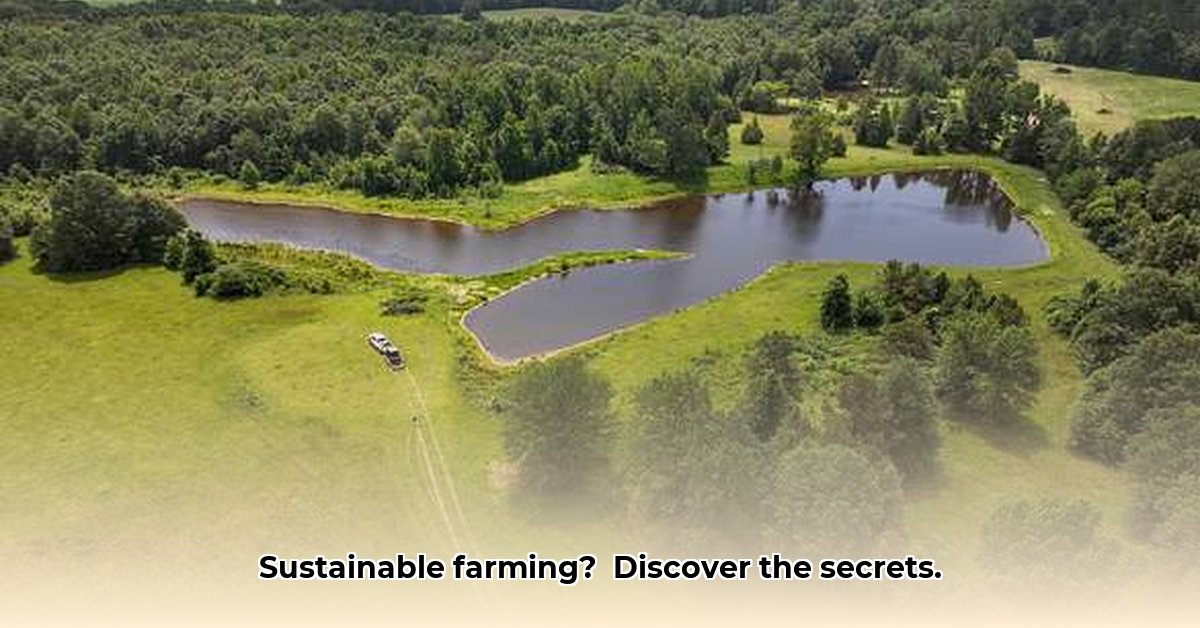
Farm and Ranch Tupelo MS: A Deep Dive into Sustainable Agriculture
Tupelo Farm & Ranch, situated in Mississippi's fertile Delta, represents a vital shift in the agricultural landscape. It's not just about bigger yields; it's about farming smarter, more sustainably. This means utilizing equipment that enhances, not diminishes, the environment. Tupelo Farm & Ranch addresses this growing need, offering both new and pre-owned equipment to farmers with diverse budgets. However, a critical challenge facing Tupelo, and the industry as a whole, is the scarcity of quantifiable data demonstrating the equipment's environmental impact. This lack of transparency hinders broader adoption of sustainable practices.
How can we bridge this gap between the promise of sustainable agriculture and the reality of its implementation? This is the central question driving Tupelo Farm & Ranch's mission and, indeed, the fate of environmentally conscious farming.
The Mississippi Farm Story: Balancing Budgets and Environmental Responsibility
Picture a Mississippi farmer grappling with the decision of investing in new equipment. The need for high-performing tools is undeniable; however, the cost of eco-friendly machinery can be prohibitive. This is the reality for countless farmers, highlighting the need for accessible, sustainable solutions. Tupelo Farm & Ranch attempts to navigate this by offering a range of options, catering to diverse economic situations; recognizing that sustainable agriculture shouldn't be a luxury. But the obstacle remains: proving long-term environmental benefits. How can farmers justify investing in more expensive equipment without clear demonstrations of cost savings and environmental gains? This central challenge highlights the larger systemic issue facing not just Tupelo but the entire sustainable agriculture sector.
The Shifting Landscape: Sustainable Agriculture's Ups and Downs
The push toward sustainable agriculture is accelerating, driven by concerns regarding climate change and the environmental toll of conventional farming. Precision agriculture (using GPS, sensors, and data analysis to enhance resource use) is gaining traction. Yet, the significant upfront investment acts as a barrier for many farmers. This underscores the crucial role of affordable and accessible sustainable solutions. Tupelo Farm & Ranch attempts to address this, but the market demands more than just accessibility; it requires verifiable evidence.
The transition necessitates a fundamental shift in mindset and practice. Some farmers may hesitate due to unfamiliarity or perceive a lack of short-term ROI. Others face access-to-finance or reliable information challenges concerning long-term benefits. Overcoming these barriers is key to wider adoption of sustainable practices, and thus, essential to the success of businesses like Tupelo Farm & Ranch.
The Promise and Pitfalls of Green Tech on the Farm
Investing in sustainable agricultural technology resembles purchasing a hybrid vehicle—a higher upfront cost, but long-term fuel savings and environmental advantages. It's a long-term investment demanding a clear understanding of the potential returns. The current problem stems from a lack of standardized data comparing the environmental footprint and long-term cost-effectiveness of varied equipment. This lack of transparency impedes informed decision-making, hindering the widespread use of sustainable technologies. The need is for a system allowing direct comparison of both initial cost and lifespan, alongside environmental impact (e.g., fuel efficiency, emissions, resource use). Presenting this information clearly will incentivize farmers to invest in sustainable equipment.
Charting a Course Towards a Greener Future: Recommendations for Tupelo Farm & Ranch and Beyond
Tupelo Farm & Ranch should adopt a multi-pronged approach centered on data acquisition and communication:
Data-Driven Decisions: Prioritize collecting and transparently publishing data on the fuel efficiency and emissions of their equipment. Simple metrics ("X% more fuel-efficient than comparable models") would be highly valuable.
Engaging the Consumer: Conduct regular customer surveys to gauge market needs and preferences. Probe into farmers' willingness to invest in more expensive, sustainable equipment.
Storytelling: Emphasize equipment’s sustainability aspects. Move beyond technical specifications by showcasing real-world examples of how the equipment has helped farmers reduce their environmental impact.
Collaborative Partnerships: Actively seek partnerships with agricultural researchers and sustainability organizations. These collaborations provide valuable data and enhance the credibility of sustainability claims.
Advocacy for Change: Advocate for policies incentivizing sustainable technology adoption (tax breaks, grants).
Beyond Tupelo: The wider agricultural community requires support. Government incentives and financing options can make the transition more financially feasible for smaller farms. Industry-wide standards and certification programs would allow for easier equipment comparison and build consumer trust.
The Future is Sustainable
Mississippi's agricultural future, and indeed the global agricultural landscape, depends on sustainability. Tupelo Farm & Ranch has an exceptional opportunity to lead this transformation. By prioritizing data collection, transparent communication, and strategic partnerships, they can establish themselves as a leader in sustainable solutions. It's about more than equipment sales; it's about shaping a sustainable future for farmers and our planet. The journey will be challenging, but a focus on transparency and data-driven decision-making will be crucial for Tupelo Farm & Ranch in shaping a greener, more resilient agricultural system.